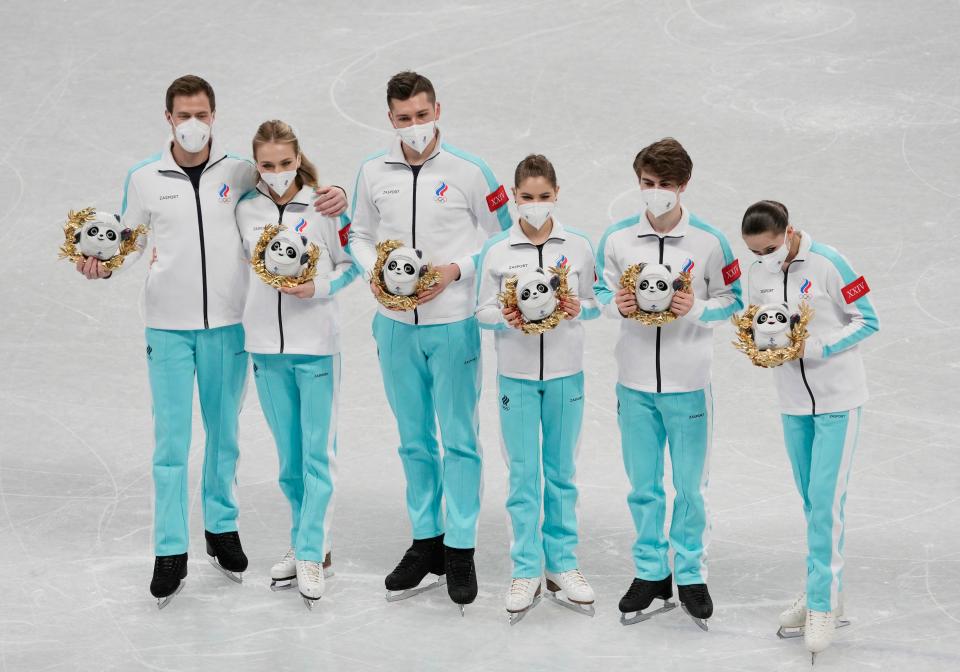Positive drug test by Russian Kamila Valieva has forced a delay of Olympic team medals ceremony
BEIJING – The medal ceremony for the Olympic figure skating team competition has been delayed by a positive drug test among the gold-medal-winning Russian team, and officials have been told that the athlete who tested positive is a minor, according to a person with knowledge of the situation who spoke to USA TODAY Sports on the condition of anonymity.
The only minor on the six-person Russian team that won gold was Kamila Valieva, 15, the gold-medal favorite in the women’s competition later in the Games.
CHASING GOLD: Follow USA's efforts at the Beijing Olympics with our exclusive newsletter
BEIJING TEXT UPDATES: Get behind-the-scenes access to the Beijing Olympics
MEDAL COUNT: How each country performed at the Winter Games
Russian newspaper RBC reported that Valieva tested positive for trimetazidine, a heart medication that has been banned by the World Anti-Doping Agency since 2014 because it can improve endurance and blood flow.
Valieva practiced Thursday, which indicates that Russia is appealing or fighting the result of her drug test.
A spokesperson for the Russian Olympic Committee has not responded to an email seeking comment, while a spokesperson for the Kremlin asked for patience.
"Let’s, for the sake of understanding, wait for some explanations either from our sports officials or from the (International Olympic Committee)," Kremlin spokesman Dmitry Peskov said, according to the Associated Press.
Russia dominated the three-day team figure skating event, winning the gold medal Monday while the Americans took the silver and Japan the bronze. Canada was fourth.

The three medal-winning teams were honored on the ice immediately after the competition Monday afternoon, with the medals to be given out Tuesday night in Beijing’s Olympic medals plaza.
But that ceremony did not happen due to an ongoing legal issue, IOC spokesman Mark Adams said Wednesday.
“We have athletes that have won medals involved,” Adams said at the IOC’s daily briefing.
In a statement, the International Skating Union, the worldwide governing body for figure skating, said there were ongoing legal talks but did not disclose any additional information.
Anti-doping violations in figure skating fall under the jurisdiction of the ISU's disciplinary commission, though they can also be quickly appealed to the Swiss-based Court of Arbitration for Sport (CAS). CAS has set up two temporary offices in Beijing to hear urgent matters during the Winter Games.
Because Valieva is not yet 16, she would be considered a "protected person" under WADA's anti-doping code, which means she would be subject to lighter penalties and possibly exempt from public disclosure regulations. The code stipulates that anti-doping violations involving protected persons is optional, and "shall be proportionate to the facts and circumstances of the case."
Information from the Associated Press was used in this report.
This article originally appeared on USA TODAY: Figure skating medal ceremony delayed by Russian drug test at Olympics


